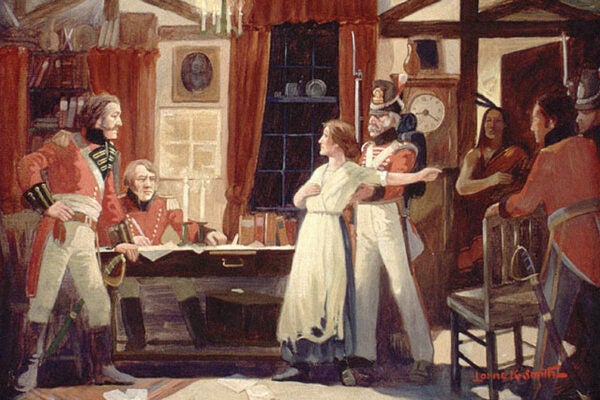Laura Secord’s Walk
In 1813, Laura Secord walked 20 miles through enemy territory to warn British troops of an American attack, changing the course of the War of 1812.
The Poet Who Writes About Vietnam in Hebrew
Vaan Nguyen’s poetry examines exile and memory through the lens of her family’s journey from Vietnam to Israel.
Tarring and Feathering, American Style
What began as a European folk practice became a distinctly American ritual of public punishment.
A History of Fakery on Film
Concerns about AI-made images have deep roots in the earliest years of filmmaking.
Disavowing Politics While Doing Politics
People often claim to be “nonpolitical” even as they seek policy change, a stance that supports civic action but narrows democratic debate.
Contesting American Citizenship… in 1784
The Longchamps Affair shows how early Americans struggled to define citizenship amid conflicting laws and revolutionary values.
A Brief History of Men Showing Leg
The story of the modern suit begins with tight pants, as men’s legs became markers of class, civility, and sexuality.
Samurai and Guerrillas: The First Official Japanese Visit
The first Japanese delegation to the US captivated crowds and confounded expectations, as the press cast its samurai as “effeminate.”
The Book That Became The Iron Giant
Before it was a cult classic, the Warner Bros. film began as a 1968 children’s novel by Ted Hughes, though the book and movie tell notably different tales.
Za’atar: From Ancient Texts to Modern Conflict
More than an herb, za’atar shapes, narrates, and anchors identity and political dynamics of the Eastern Mediterranean and Sinai Peninsula.









